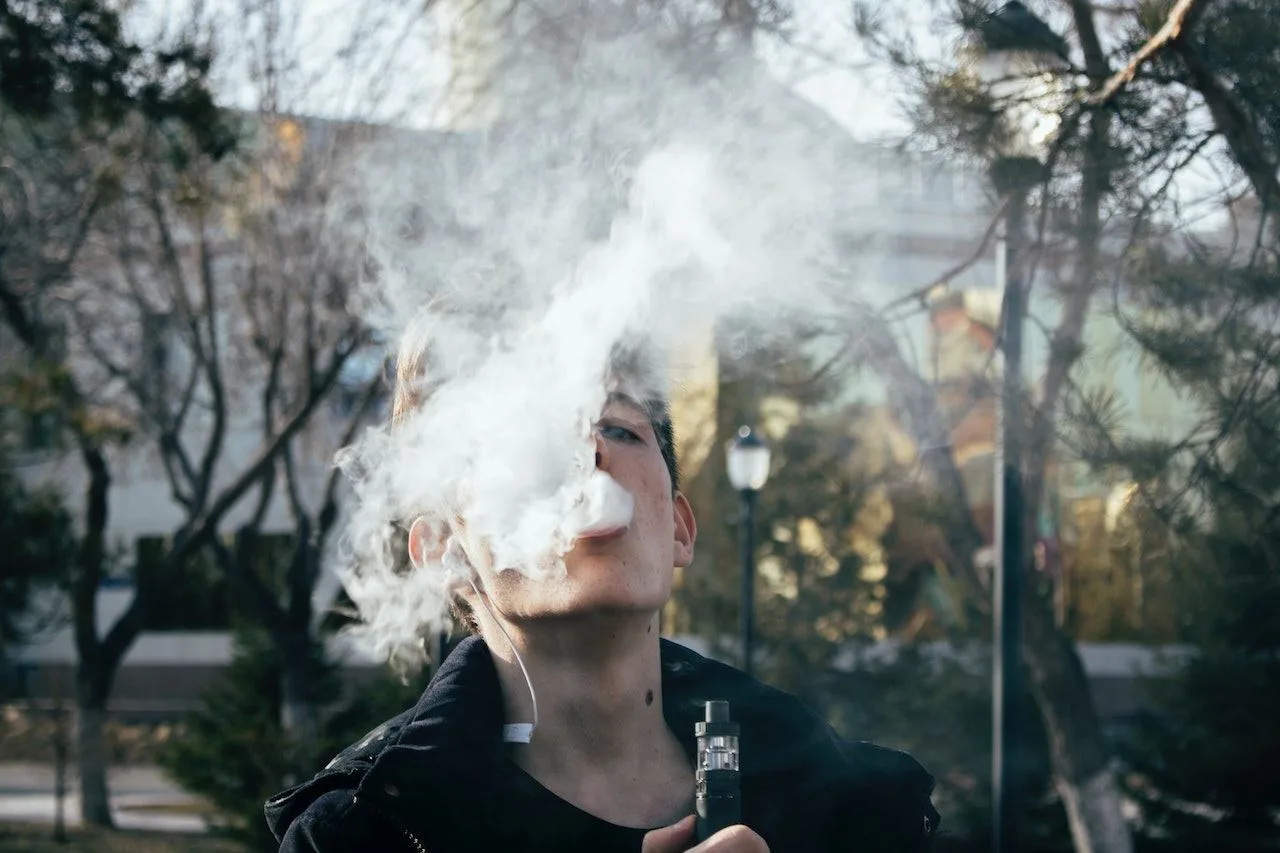Vaping is a topic that has seen increased coverage over the past few weeks, with the CDC recently reporting that over 2.55 million middle and high school students had vaped in the past 30 days, with 85% of them opting for flavored vapes. Vaping is now considered a global epidemic. Professor Brian Premack stated how it has created “a whole new generation of unsuspecting teenage addicts.”
Flavor Chasing: The Teen Vaping Crisis
As a device initially presented as a safe alternative to smoking, health experts have spoken out against these devices, calling them dangerous and potentially deadly. One of these experts is Cedric Rutland, M.D.
As a board-certified pulmonologist who is an expert in asthma, COPD, ILD, Navigational Bronchoscopy, and vaping, he is featured on an episode of The Dr. Phil show, titled “Flavor Chasing: The Teen Vaping Crisis”. Dr. Rutland speaks on the damage vaping can cause to your lungs, stating that the lungs are “not very good at separating out different chemicals.”
In the episode, Dr. Rutland explains exactly what vaping does to your lungs, stating that even just one puff of a vape can pose health risks. “There’s different susceptibility, but for some people, it can be just one puff of a vape.’
The Danger Is in The Flavor
“When you vape, because of the different flavors, there are so many types of molecules that get created by how powerful the vape is,” he says.
Dr. Rutland cited how the unpredictable variety of ingredients in these flavors can pose a massive problem. An example of this is cinnamon vape flavoring, one of the most dangerous flavors.
Made from cinnamaldehyde, which can cause lung issues when inhaled, this flavor is known to damage white blood cells. Menthol and peppermint-flavored vapes have also been shown to have high concentrations of pulegone, an addictive carcinogenic addictive which has been banned from food.
More Dangerous Ingredients
“All those molecules stimulate the inflammatory response,” he adds. This can lead to the development of adverse health conditions.
“You can have many chemicals (in them) like propylene glycol…glycerol, and then you have more serious chemicals like distal or formaldehydes because these chemicals are used to flavor.”

Photo by Karl Edwards on Unsplash
With some of these flavorings even containing pesticides, they are very dangerous to one’s health, with one of the effects being Pneumothorax, which affects the structure of the lungs.
Vaping leads to Pneumothorax
When one vapes, they take more frequent and longer puffs. According to Dr. Rutland, when people smoke cigarettes, “they’ll suck for about a second. People that smoke vapes, inhale for about four seconds.”
This extended inhalation leads to the stimulation of your inflammatory response. This leads to the immune system triggering the release of white blood cells in your body, which infiltrate the airways. As this is happening, you might cough, leading to the development of pneumothorax.
What is Pneumothorax?
This is the presence of air or gas in the cavity between the lungs and the chest wall, AKA collapsed lung.
“Air sits in between your chest wall and your lung, and then that (present) air pressure increases,” Dr. Rutland says, showing how the lung collapses as you breathe more air in, leading to the inability to breathe.
Surgery of A Collapsed Lung
In the same episode, a young woman who had vaped for nearly five years found herself in the hospital needing emergency surgery for a collapsed lung, explaining how they needed to basically scrub her lung and rib. “They take a little sharp like scrubber thing,” she explains, which has left her insides feeling raw and inflamed.
“When you vape, because of the different flavors, there are so many types of molecules that get created by how powerful the vape is, what the wattage is, and what the battery source is,”
Dr. Rutland says, showing how the dangers of vaping come from the manufacturing of these individual elements. The danger doesn’t just arise from the liquid flavoring, but also from the battery, and the coil which is burned.
The Future of Vaping
Many states have already implemented flavor bans. These states include California, New York, Massachusetts, and New Jersey. With policymakers now placing age restrictions on vaping, it is safe to say that vaping may be a thing of the past in the very near future.
Watch The Interview
The episode below features Dr. Cedric Rutland on the Dr. Phil Show.
MAIN IMAGE CREDIT: Photo by Ruslan Alekso
References
- MacDonald, A.Q. and Hill, D., Strategic Anti-Vaping Campaign Messaging Towards Adolescents: A Qualitative Content Analysis Study.





![women [longevity live]](https://longevitylive.com/wp-content/uploads/2020/01/photo-of-women-walking-down-the-street-1116984-100x100.jpg)










